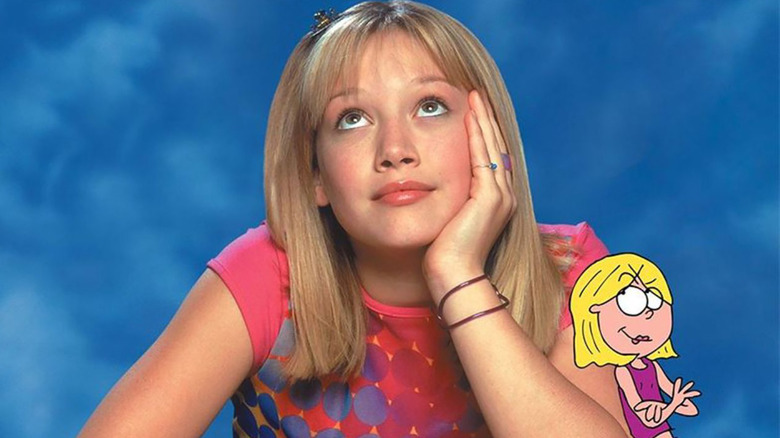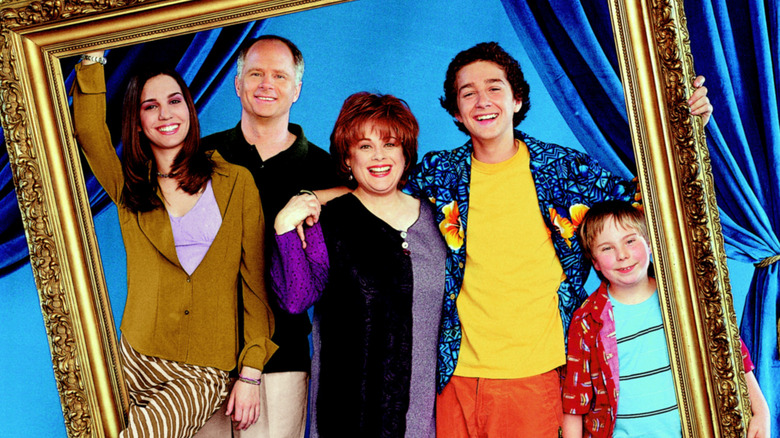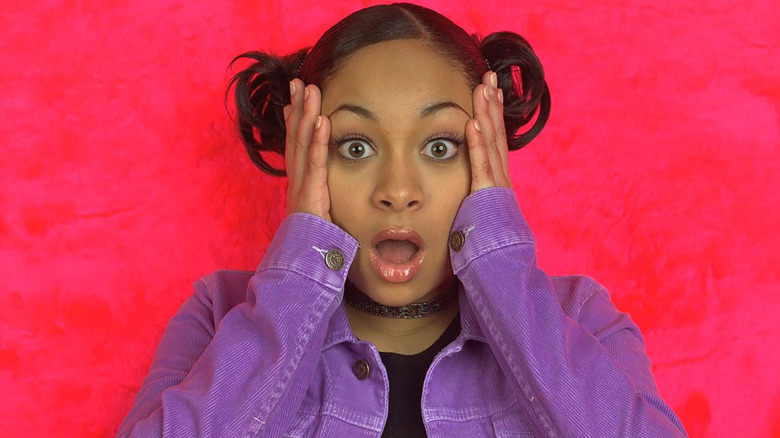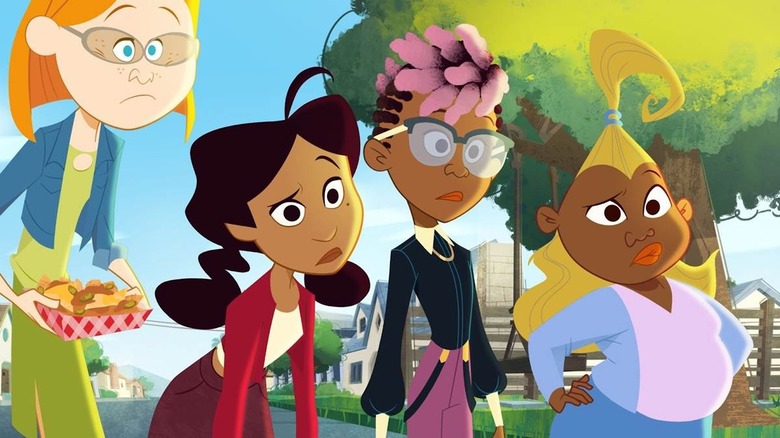TV, Interrupted: Disney Channel Shows And The Dreaded 65-Episode Rule
(Welcome to TV, Interrupted, a series where the /Film team remembers, eulogizes, and makes a case for the revival of TV shows we loved that were canceled far too soon.)
As a child of the 1990s, I was raised on UPN, Cartoon Network, Nickelodeon, Fox Family and the Disney Channel. My mother ran a daycare out of our home for the entirety of my upbringing, which frequently meant that when shows like "Are You Afraid of the Dark" or "Goosebumps" were considered too scary by some of the daycare kids, the Disney Channel was usually ol' reliable. I loved The Disney Channel Original Movies, I loved the fact that the only commercials on the channel were for other Disney Channel shows, but I hated how many of the shows I loved ended way, way too soon.
For the uninformed, after 1998 and prior to 2004, The Disney Channel unofficially operated under what was known as the "65-Episode Rule." What this meant was that no matter how popular a show was, all Disney Channel original series had to come to a close by episode 65. There were a handful of exceptions, but by and large, the 65-episode rule reigned supreme. The theory was that the episode limit would allow an episode to be broadcast each weekday, for a total of 13 weeks, which is one-quarter of a year. Four different Disney Channel shows would be able to be broadcast within one calendar year by following this (5 x 13 – 65) standard.
This rule may have allowed for programming, syndication, and production cost flexibility, but it also put the nail in the coffin on quality shows that deserved a longer life.
Great shows canceled too soon
The six-year period when the 65-episode rule was at its most strict was also when the Disney Channel was putting out some of its most popular content. "The Proud Family" was the Disney Channel's first animated series centered around a Black family, and is largely considered one of the most groundbreaking animated series ever created. The Disney Channel also tried to capitalize off of the success of shows like "Are You Afraid of the Dark?" as well as the burgeoning accessibility of the internet with its paranormal mystery show, "So Weird." Both series were hugely popular, but were two of the first to go.
"The Famous Jett Jackson," Lilo & Stitch: The Series," "Phil of the Future," and "American Dragon: Jake Long" also sadly fell to the rule, ending at the height of their popularity and frustrating fans across the globe. In the case of "The Proud Family," the show was given a Disney Channel Original Movie to continue to capitalize off of the show's popularity despite the episode rule.
There were two shows, however, that laid the groundwork for what would inevitably lead to the end of the rule. "Even Stevens" and "Lizzie McGuire" were not just popular, they were cultural phenomena. The series finale of the former came in the form of the DCOM "The Even Stevens Movie," and it reportedly brought in over 5.1 million viewers upon premiere. its The success of both shows allowed the DCOM "Cadet Kelly," starring Hilary Duff and Christy Carlson-Romano, to become the at-the-time biggest DCOM premiere, and "The Lizzie McGuire Movie" received a theatrical release and made over $55 million at the box office.
The shows that broke the rule
The cancelation of "Even Stevens" and "Lizzie McGuire" led to fan outrage, and Disney started to rethink whether or not this rule was truly the key to the channel's success. Shortly after the end of two of the most popular Disney Channel shows, they introduced two that would break the rule for good. The channel's second animated original series, "Kim Possible," was canceled after 65 episodes at first, but in a first for the network, was renewed for a fourth and final season. Voiced by unsung hero of the channel, Christy Carlson-Romano, "Kim Possible" broke the 65-episode rule, nabbed two different made-for-TV movies, and was given a live-action film adaptation in 2019.
In the live-action world, "That's So Raven" was not only the Disney Channel's first multi-camera sitcom, but also its first original series to surpass the arbitrary episode rule without any cancelation to get it there. The show ran for four seasons and 100 episodes, only ending because the actors had aged beyond the targeted teenage demographic. "Raven" earned two Primetime Emmy nominations for outstanding children's program, and a two-series spin-off called "Cory in the House," and the sequel series "Raven's Home." The success of these two shows put an end to the 65-episode rule, allowing future Disney Channel series to come to a more natural conclusion and end based on legitimate factors like popularity, cost, and story, rather than some baseless magic number.
Revivals of canceled shows
After Disney+ allowed the now-adult fans of many of these shows access to their beloved favorites, interest immediately sparked for revivals and continuations. "Raven's Home" is heading into its fifth season in March and "The Proud Family: Louder and Prouder" is easily the streaming service's most anticipated non-Marvel, non-"Star Wars" related original. Unfortunately, the streamer did give the axe to the proposed revival of "Lizzie McGuire," allowing Hilary Duff to take on the leading role for "How I Met Your Father." Stars of the most popular Disney Channel series that spawned in the wake of the 65-episode rule ending, like "Hannah Montana," "Wizards of Waverly Place," "Shake it Up," and "The Suite Life of Zack and Cody," have all gone on to be some of the most highly sought-after actors in the industry, so seeing a revival anytime soon is unlikely.
While the 65-episode rule may be gone, The Disney Channel does still have a tendency to end shows after four seasons, typically due to the actors getting too old to continue playing their teenage roles. With the popularity of Disney+, if there's any justice in this world, Disney will be unafraid to revisit their most adventurous shows like "So Weird, " and finally give them the opportunity to thrive ... instead of trying to make series based on movies that they're just going to kill after one season anyway.



